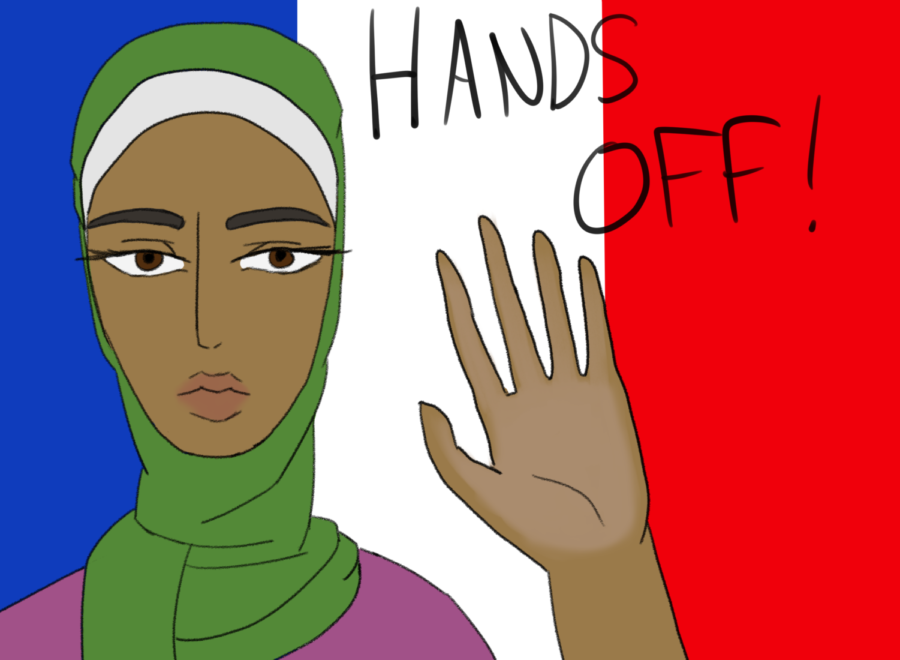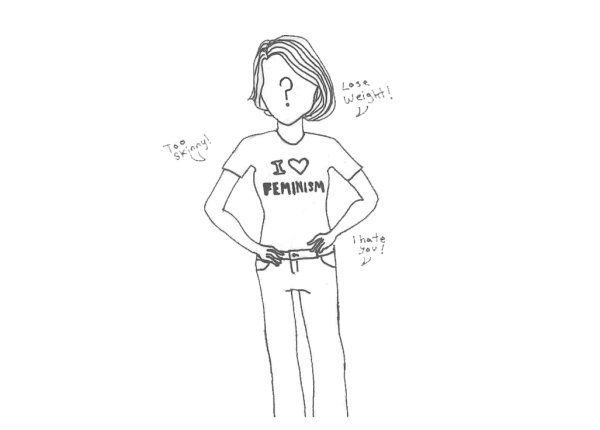Hijab ban passed by French senate raises concerns over Islamophobia
The blatant Islamophobia in France, especially by prominent members of the government, is the source of much frustration for French Muslim women.
Since 1905, France has been practicing laïcité, also known as secularism, which means that the state has to remain neutral, neither supporting or denouncing any religion. France is also home to over 5.7 million Muslims, more than any other European country, but repeatedly makes headlines for their government’s obvious Islamophobia. For a country that prides itself on being secular and indivisible, France’s leaders have made some questionable choices when it comes to Muslims in their country.
In November of 2015, there were several coordinated attacks across Paris orchestrated by ISIS, a known terrorist organization. Over 130 people were killed, and hundreds more were left injured. This was not the first or the last terrorist attack in Paris, but it fueled a lot of hatred and Islamophobia. When people are scared, they tend to do rash things, and in this case, many started blaming all Muslims for the actions of an extremist group. The problem is not solved when the countries’ leaders actively participate in pushing this narrative by making Islamophobic comments or creating bans on hijabs, one of the easiest ways to identify Muslim women.
From what they wear to what they eat and how they practice, Muslims all over France have been stigmatized year after year. During a speech, the interior minister of France, Gérald Darmanin, listed activities like fasting, praying and growing a beard as signs of radicalization. These are ordinary, common Muslim traditions that have been practiced —along with many others — for centuries. After the beheading of a French teacher who showed a picture of the Prophet Muhammad by an 18-year-old Chechen in October of 2020, the country intensified its crackdown on Muslims, with more raids of mosques and homes and threats to shut down aid groups.
Banning headscarves is not a new plan. The “war on terror” France has been fighting started decades ago. In 1989, three Muslim girls were expelled from their middle school for wearing hijabs. Then, in 2014, burkinis, modest bikinis, were banned. As late as April of 2021, the French Senate passed an amendment making it illegal for young girls to wear the hijab, and while it’s not likely to pass in the other part of their congress (the National Assembly), it’s still absurd and offensive that such amendments can be made in today’s world. There are even proposals that force Muslim women to remove their headscarves in public places. Over a decade ago, face coverings and burqas were banned from public places for safety reasons, and now, face coverings are required due to the pandemic, as if they stopped “posing a threat” to national security as long as Muslim women were not the only ones wearing them.
The ideas about Muslim women being oppressed because they are forced to wear the hijab comes from the same people who love policing women’s bodies. It’s almost as if the problem has nothing to do with doing what’s best for women, but instead, being in control of what they wear. The leaders who claim that Muslim women are oppressed because they wear a hijab are the same ones who want to force them to remove clothes they are comfortable with. Whether they have a savior complex that doesn’t allow them to see that what they are doing is wrong or they are simply unapologetically Islamophobic, it’s unfair to the millions of French Muslim women whose lives are affected and endangered because of their views.
The rest of the world is, thankfully, not on board with the way France has handled things, especially Middle Eastern countries. There have been boycotts of French products after President Macron said Islam was a religion in crisis. The prime minister of Pakistan, Imran Khan, said comments made by the president were encouraging Islamophobia.“This is a time when President Macron could have put healing touch & denied space to extremists rather than creating further polarisation & marginalisation that inevitably leads to radicalisation,” Imran Khan, the prime minister of Pakistan, tweeted.
It’s not right that millions of French Muslims are being stigmatized and becoming targets, both literally and figuratively, because of their religion. As leaders of a country that preaches secularism, French officials have done more than enough to prove that they don’t follow their own values as they continue to attack Muslims. Forcing Muslim women to take off the hijab is just as wrong as forcing Muslim women to wear it.

Yasmin Mohamed is a senior at CHHS and a staff writer for The Heights Herald. She enjoys journalism because she loves keeping up with the latest news and...








